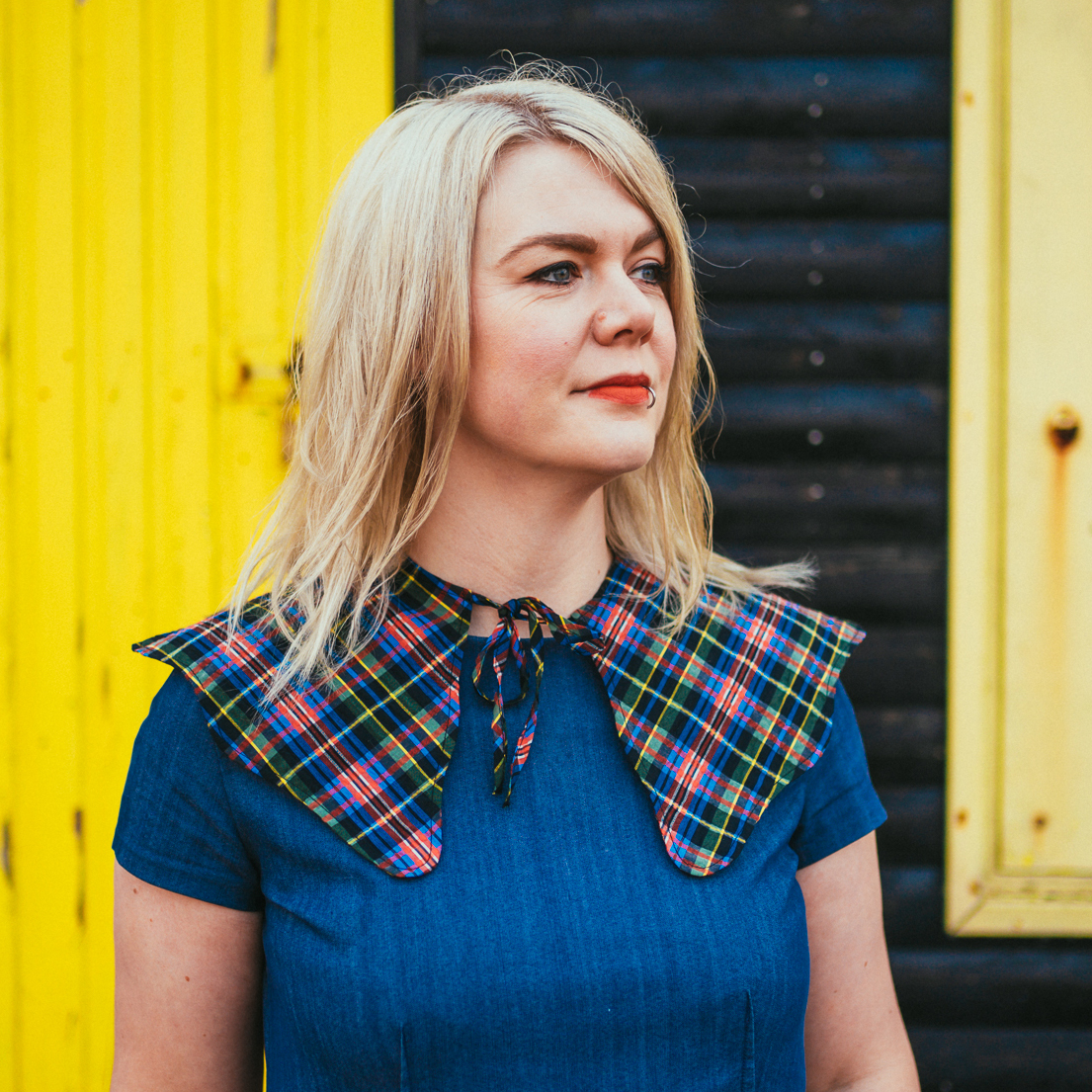Lunachicks' Gina Volpe: "Most bands aren't getting signed by a couple of very prominent indie-rockers within their first year. That was a huge coup for us"
In new memoir Fallopian Rhapsody, Volpe revisits her experiences of learning the guitar, recalls her instinctive affinity for the Marshall Jubilee and discusses what the future holds for the iconic punk-rock outfit
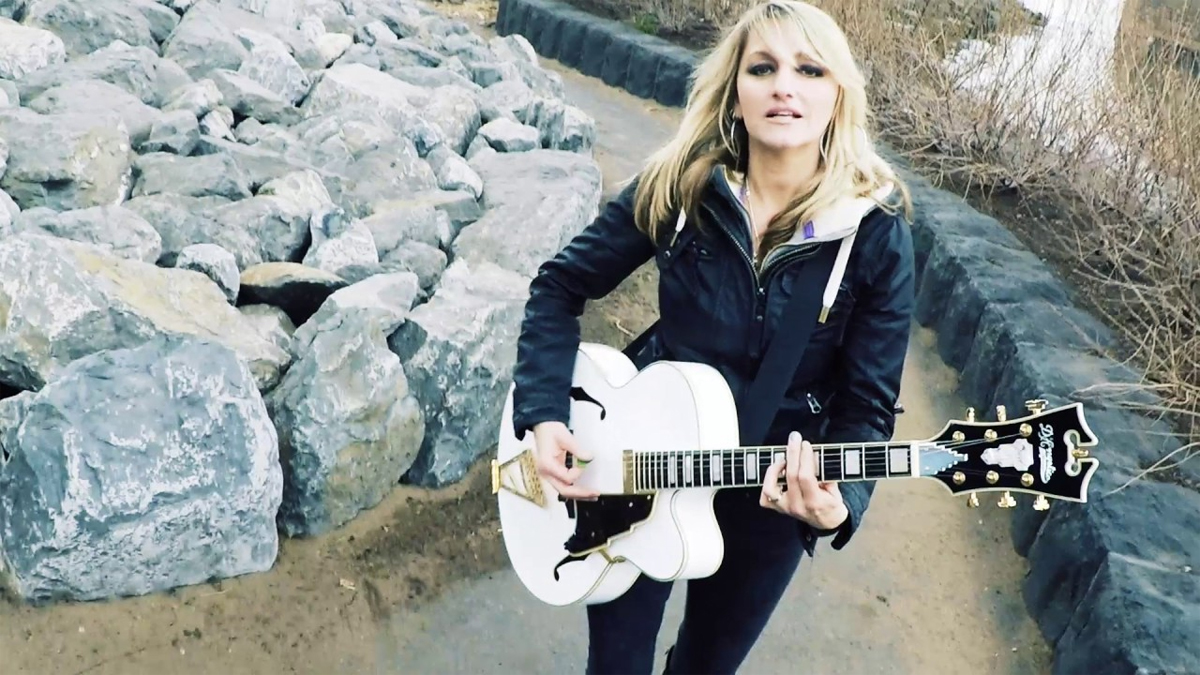
When Lunachicks formed in 1987, they were way ahead of the Cali-cool kids who would dominate the Warped Tours of the ‘90s, standing on the sidelines of West Coast America's emerging "riot grrrl" scene.
In truth, the band shared more onstage chemistry (and theatrical styling) with vaudeville shock-rock Romeo Alice Cooper than their pop-punk peers. For guitarist Gina Volpe, that comparison rings true, having experienced a childhood of bowing to heavy Black Sabbath riffs and Pink Floyd fandom.
In the band’s coming-of-age memoir, Fallopian Rhapsody, Volpe explains how David Gilmour’s solos made her want “to crawl into the speakers and live inside his guitar tone”. She’s just as effusive when we speak over the phone from her apartment in New York, with her rescue parakeets, Lips and Roberta, chirping in the cage on the other side of the paneled living room.
“David Gilmour is one of my favorite guitar players, but you would never know because you don't hear that in Lunachicks," she says sagely. “Every guitar solo is perfection.”
This quintessential ‘70s sound would form the backbone of Volpe’s early guitar appreciation as she began tentatively plucking away at her mom’s boyfriend’s guitar, initially struggling with the high, unforgiving action of the acoustic. Thankfully, her elder sister Ren was on hand, and gifted her a Kent electric guitar and tiny solid-state amp for Christmas.
“Finding a neck that's smaller and more manageable for smaller hands made a huge difference,” she explains. With her playing reignited, Volpe soon upgraded, loaning a friend’s brother’s pink B.C. Rich guitar and getting the number for his guitar teacher.
“He was great because he was like, 'Okay, tell me what music you want to learn and I'll show you how to play it',” she beams. “He taught me how to read tabs, the pentatonic scale, a couple of chords – power chords, barre chords – and then I had everything I needed to know to write a song.”
Get The Pick Newsletter
All the latest guitar news, interviews, lessons, reviews, deals and more, direct to your inbox!
It was at this point Volpe met Theo Kolgan and Sydney “Squid” Silver at LaGuardia High School of Music & Art and Performing Arts, both of whom approached her about forming a band. But the offer came with internal conflicts, as Volpe confesses in the book, admitting she didn’t feel like a “natural performer”.
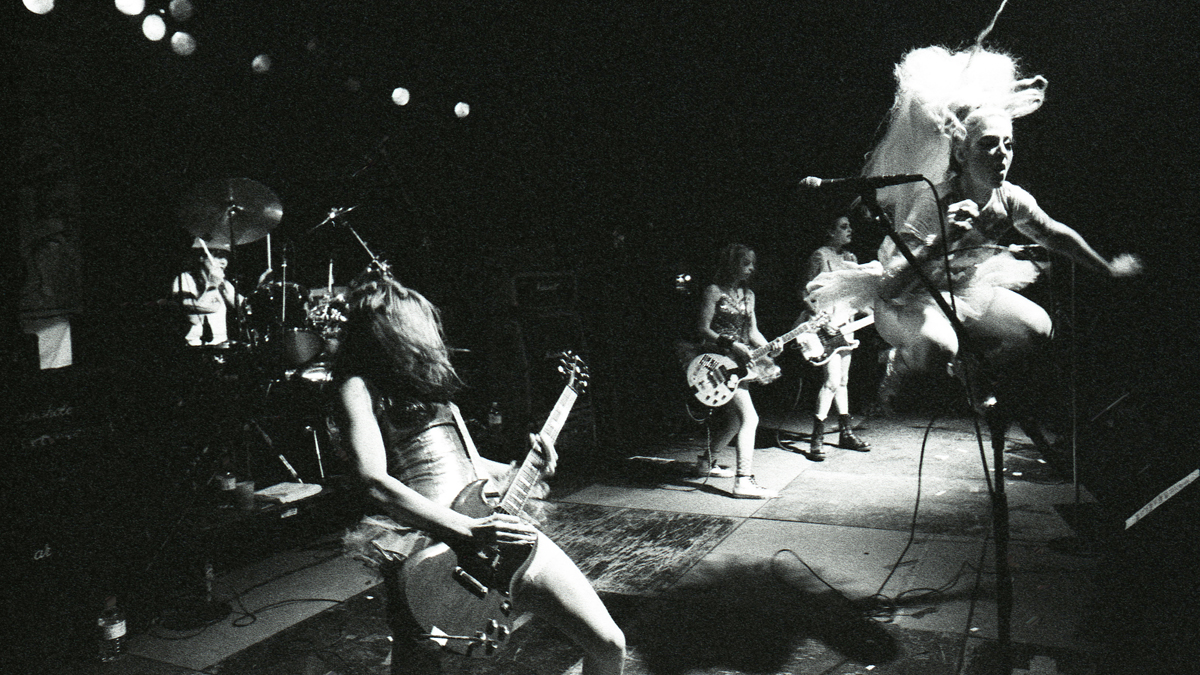
Decades on, Lunachicks are renowned for their dynamic and entertaining shows, so how did Volpe build her confidence on stage? “I learned to shut the mind off, not overthink, and have a good time instead of being self-conscious about, 'Should I do this? What should I say?' Just go out there and do it.”
This self-belief only continued to blossom after seeing an all-female hardcore band at New York’s CBGB club, and digging out bands like Raging Slab. Their guitarist, the late Elyse Steinman, was a particular influence on Volpe, who describes her in the book as “a badass muthafuckin’ bitch who knew how to rip!” Steinman tapped into Volpe’s long-standing obsession with the blues and introduced a new consideration: visibility.
“At the time, there weren't a lot of female guitar players. I knew Joan Jett and Lita Ford. I knew Jennifer Batten from Michael Jackson but I was so not into any of that finger-tapping. But then there's Elyse with a slide guitar, those big bell bottoms, and her guitar cut into the shape of the United States.”
The band were also local so, when Volpe began gigging, the pair often crossed paths, making the idea of performing herself all the more achievable. “Watching her play made it realistic that I could get up there and do that too. When other women tell me that [now] I'm like, 'But I was you. I was the one watching.'”
It was at one of those local performances that Lunachicks caught the attention of Sonic Youth’s Kim Gordon and Thurston Moore.
Buoyed up after seeing the band perform at The Limelight, the couple sent a demo to Paul Smith (who had released Butthole Surfers and Dinosaur Jr. in the UK), and soon landed them a deal on his label, Blast First.
“Talk about being in the right place at the right time," recalls Volpe. "Most bands within their first year or two are not getting signed to a record label in England by a couple of very prominent indie-rockers. That was a huge coup for us.”
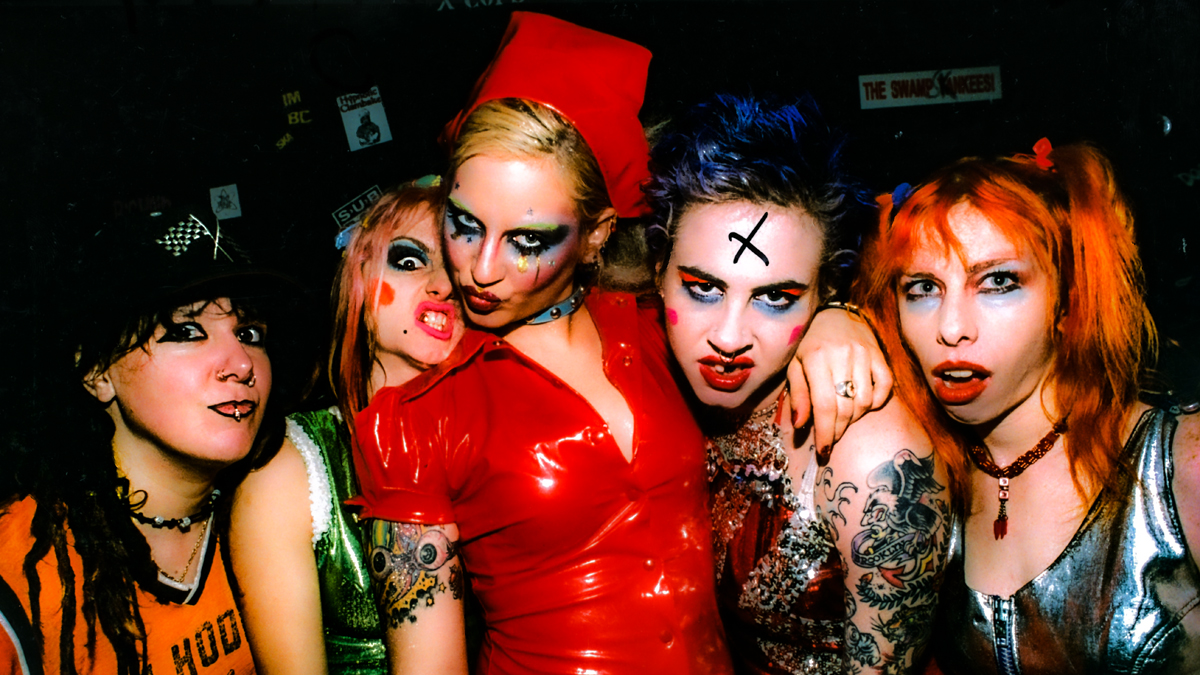
Heading into the studio for the first time meant the band also had to switch up the tiny solid-state amps of their teens, leading to a number of gear choices that have stuck with Volpe ever since. “After we got signed, Paul [Smith] said, 'Let's go shopping.’ We went to 48th Street where all the music stores were. This was '89 and there was an anniversary series of the Jubilee on sale.
I didn't know a thing about amps – I just wanted a Marshall [Jubilee]. I didn't realize what a special amp that was until later
"I didn't know a thing about amps – I just wanted a Marshall. Sydney and I both got full stacks. Do we need full stacks? No. I didn't realize what a special amp that was until later on when Slash remodeled his – the Marshall Slash is basically the Jubilee.”
Over 30 years on and Volpe still swears by the Jubilee to this day. “It has a nice, warm, full sound to it. I play an SG, which can tend to sound a little thin, so when I play on the Marshall 2000s it's a very thin, piercing sound. But on my Jubilee, it's warm and has a lot of bottom.”
But it’s not all seminal signature-style pieces on Volpe’s rig. She’s recently added an Edison preamp from hand-fabricated indie producer Nightowl, and his post-amp to crank up the lead lines. “I've been using it for solos because it gives a nice single string sound,” she explains. She also boasts a Dunwich Amps DA120 Overdrive and a Switchbone V2, alongside a suite of hand-painted analog delay pedals that her husband custom-built for the 'board.
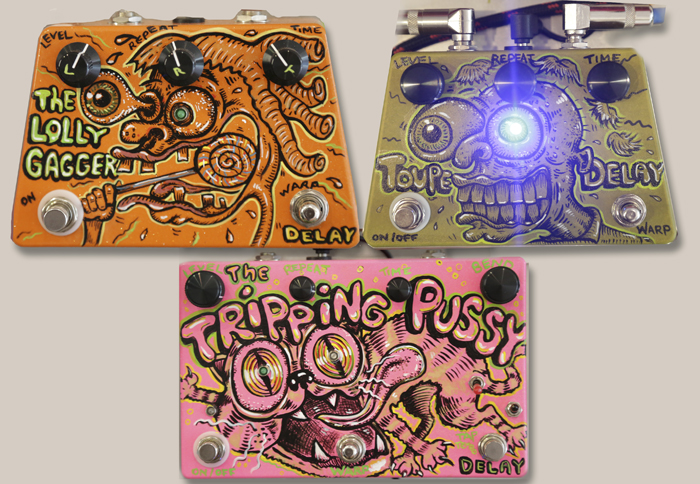
In the summer of 2001, Lunachicks disbanded, though Volpe was far from idle. The following year the guitarist appeared in the NYC rock 'n' roll drag party SqueezeBox house band. It’s here she met drummer Peter Asarisi, with whom she would go on to collaborate in heavy rock trio Bantam.
You might have also spotted her in the Fraggle Rock house band and even the Carson Daly house band “for a hot minute”. The songwriter also turned her hand at composition for Homo The Musical, as well as for several indie films, including Lola Rocknrolla’s Nefertitty franchise.
But it wasn’t until 2017 that Volpe would take some of the digital skills she picked up from composing and begin work on a solo effort. Teaming up with producer Barb Morrison (Blondie, Franz Ferdinand), her debut EP, A Different Animal, was a noticeable departure from her snotty punk roots, combining the synthesizer sounds and MIDI loops of her recent music-making journey. The shift felt purposeful, as Volpe reasons, “I didn't want to do something that I've already done before.”
The first time we will be on stage as Lunachicks in 16 years is going to be in Vegas, and we are the direct support for Devo. Like, no pressure!
There’s another first on the horizon for Volpe, as Lunachicks reform this fall for a string of US dates.
“Well, this was not how it was planned, but the first time we will be on stage in 16 years is going to be in Vegas, and we are the direct support for Devo,” she says nervously. “Like, no pressure! You haven't been on stage for a really long time and now you're opening for Devo!”
But then Lunachicks have made a career for themselves noising up the circles of their idols, having spent their early twenties touring with the Buzzcocks and the Ramones. So, while the nerves might have dissipated over the years, Volpe remains that enthusiastic guitar nerd still figuring it all out with her pals. “Now it's not so much being terrified on stage, it's more like, 'Wait, what note am I playing? I hope I don't break a string!’"
- Fallopian Rhapsody: The Story of the Lunachicks (with Jeanne Fury) is out now via Hachette Books.
Cheri Amour is a writer, editor and broadcaster intent on amplifying the voices of women and non-binary artists in print, online and on air. During her twenties, she played lead guitar in a touring two-piece, sharing the stage with The Slits and John Peel-approved punks The Nightingales. Formerly Deputy Editor at TGA Magazine, Cheri headed up its Tech section pouring over pedals with everyone to indie icon Debbie Smith (Echobelly/Curve) to multi-instrumentalist Katie Harkin (Sleater Kinney/Waxahatchee/Wye Oak). She's currently working on an upcoming 33 1/3 book on the unassuming influence of South Bronx sister troupe ESG, out in Spring 2023.
“It holds its own purely as a playable guitar. It’s really cool for the traveling musician – you can bring it on a flight and it fits beneath the seat”: Why Steve Stevens put his name to a foldable guitar
“Finely tuned instruments with effortless playability and one of the best vibratos there is”: PRS Standard 24 Satin and S2 Standard 24 Satin review


